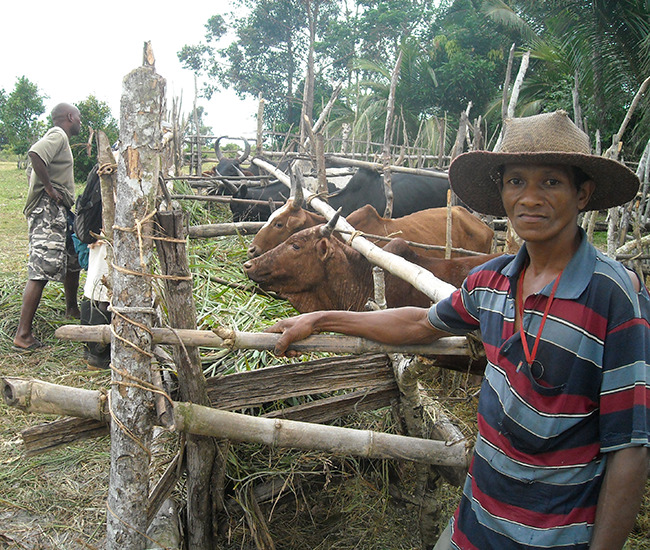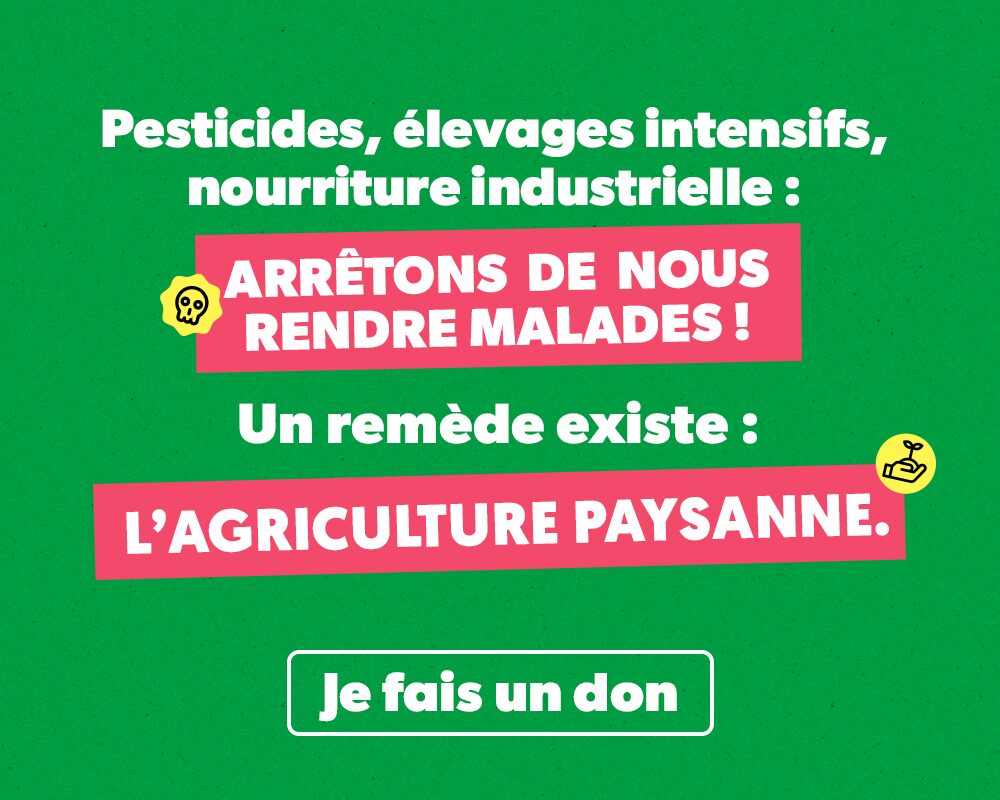Sustainable, certified production of natural fibres in Mongolia
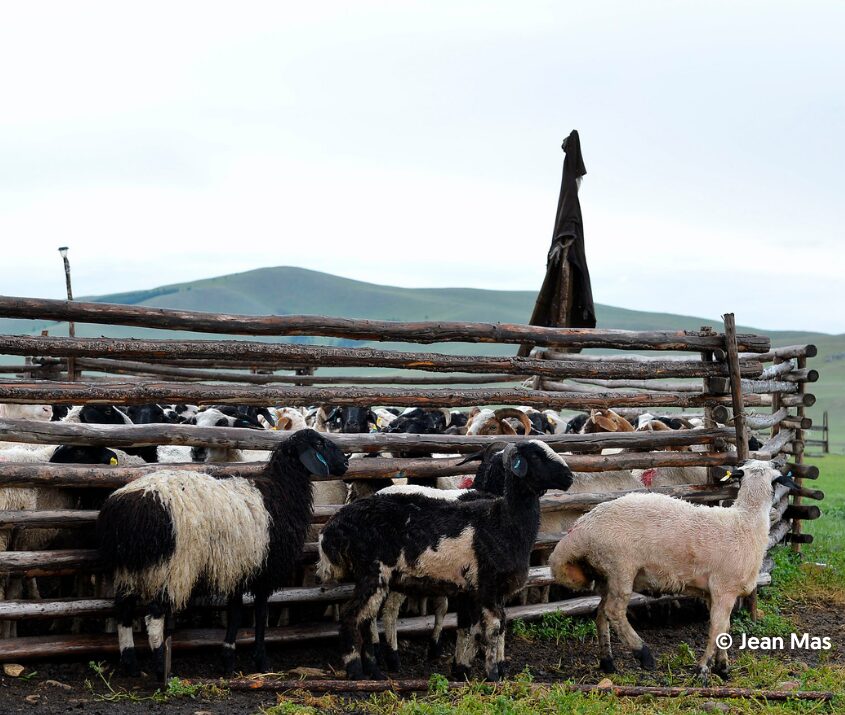
Through a series of consultations, the consortium gained an in-depth understanding of the cashmere value chains. The consortium also collaborated with farmers, local authorities, businesses and financial institutions in Mongolia. These exchanges provided a better understanding of the issues surrounding fine wool and cashmere in the country.The STeP EcoLab I assessment highlighted the importance of […]
More resilient water buffalo farming and fishing in the central marshes of southern Iraq
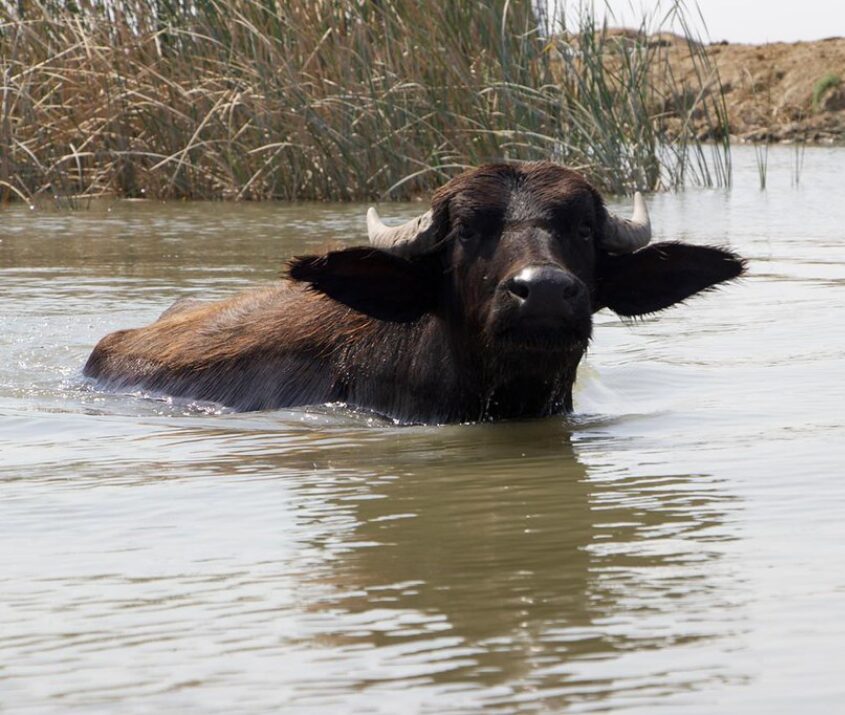
Prevention and reduction of the risk of emerging zoonoses
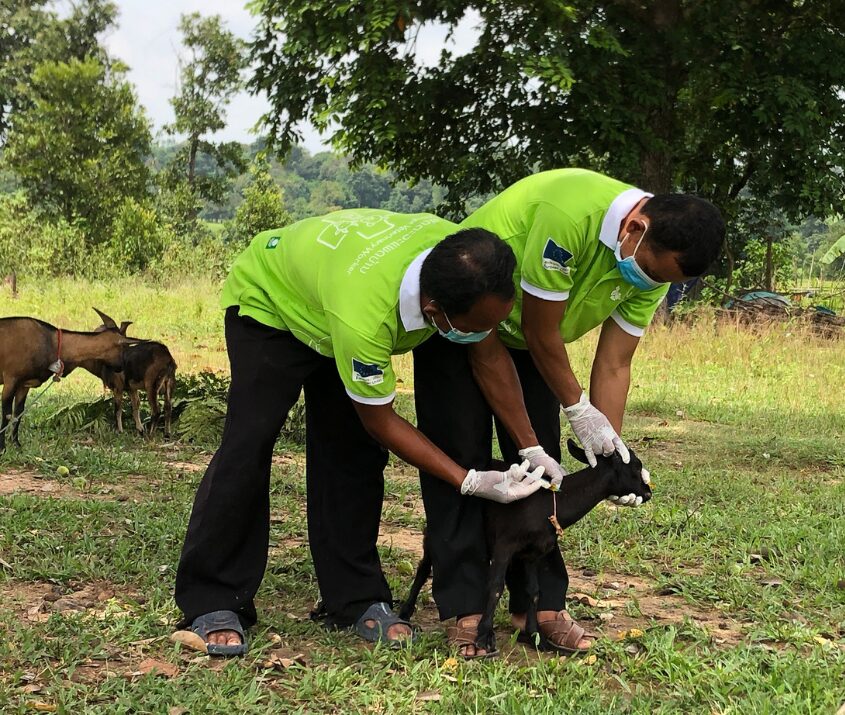
Mongolian cashmere: launch of an ethical brand created by herders

“From the heart of the herders to your hands”. This brand of cashmere products from the Eetlei Baylag cooperative network (EBCN) embodies the work accomplished over the past 10 years with AVSF’s support in Mongolia. In 2023, this network, which today brings together over 2,200 goat breeders in 9 cooperatives, is embarking on a new […]
Handbook for planning and managing CAHWs programmes
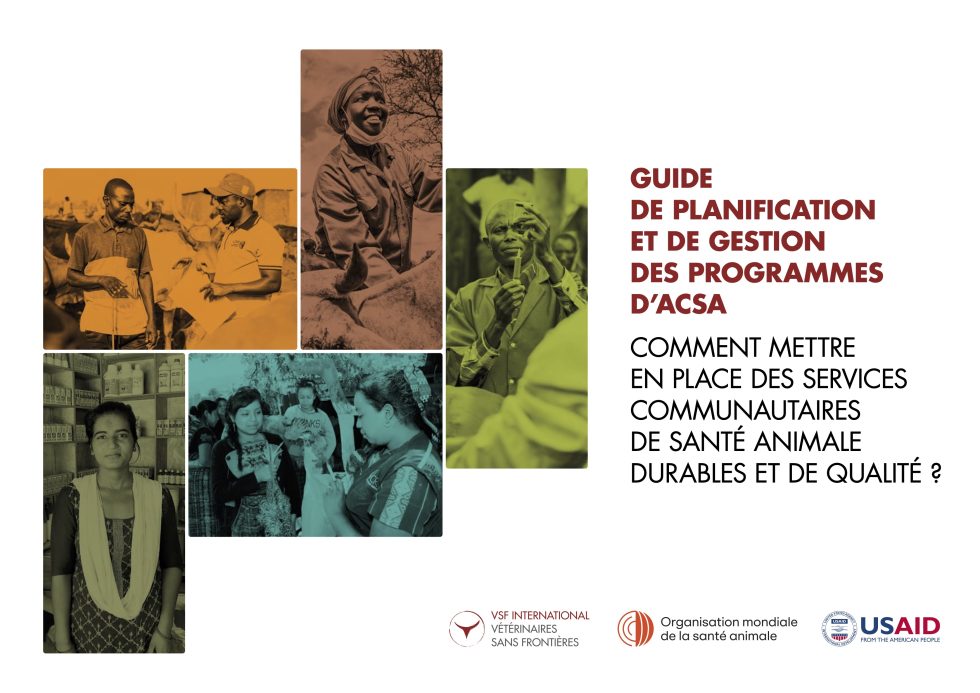
Since the early 1990s, Community Animal Health Workers (CAHWs) have been trained to provide basic animal health and production services to livestock farmers in Africa, Asia, Latin America and the Middle East. They fill a gap in areas where public and private veterinary services lack the capacity to intervene regularly, improving the livelihoods of millions […]
Animal genetics
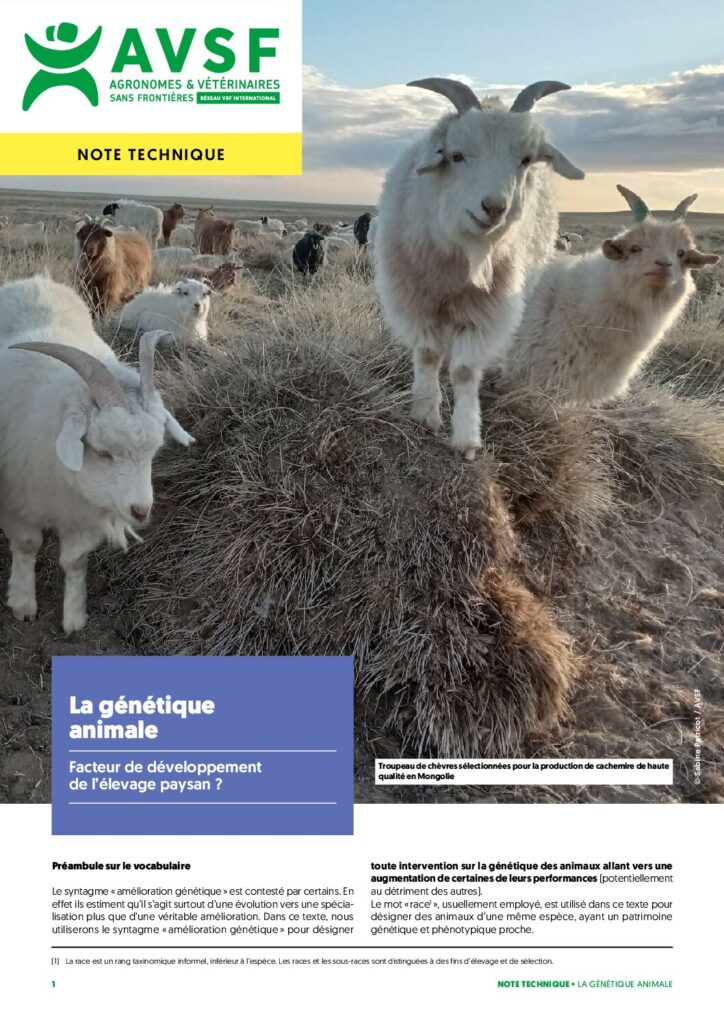
Because it promises better performance and therefore potential economic gains, the genetic improvement of livestock is often acclaimed and seen as a providential lever for development. However, if genetic improvement projects are to be a success in terms of the development of small-scale livestock farming, they need to avoid a number of pitfalls, by analysing […]
Traditional animal health pratices
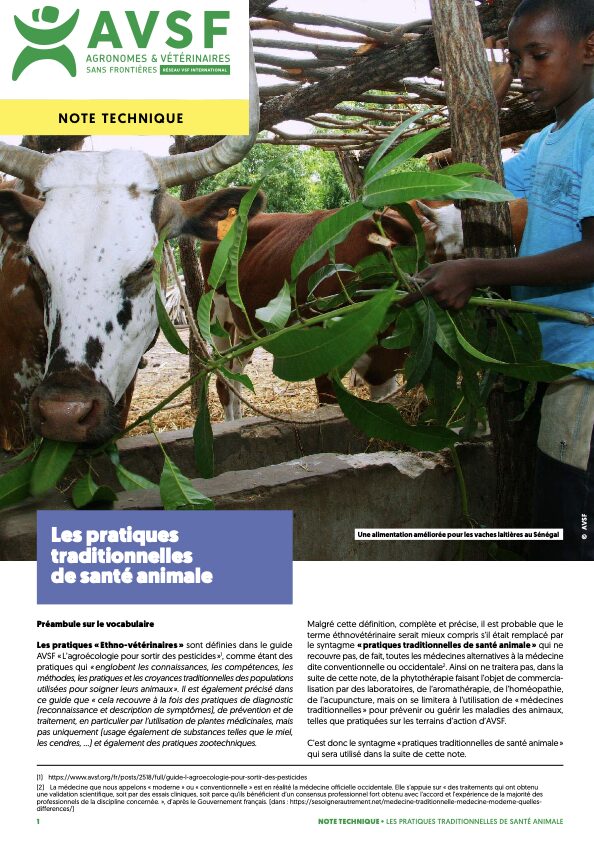
For a number of years, AVSF has been studying “ethnoveterinary” knowledge or traditional health practices in the areas where it operates. These practices are tried and tested and represent a means of improving the health of livestock at an acceptable cost to farmers. They also support a One Health approach and the development of livestock […]
Annual Report 2023
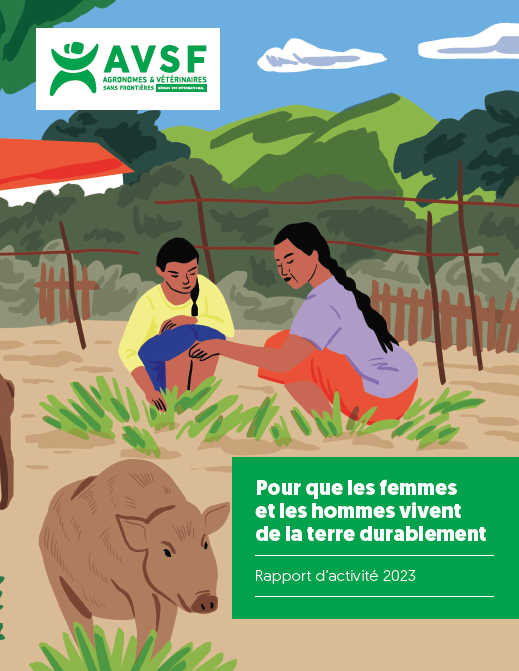
The activity report is the most comprehensive document for everything you need to know about AVSF’s missions and the 2023 balance sheet.
Cities connected to the steppes thanks to a sustainable, high-quality and remunerative meat industry
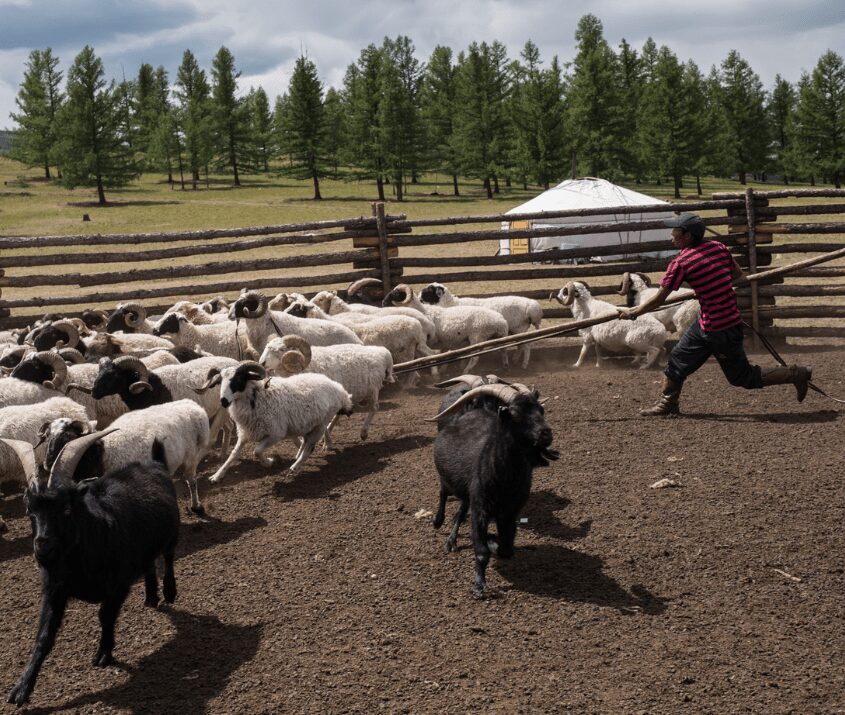
Context Occupying 80% of Mongolia’s territory, some 800.000 of its 3.3 million inhabitants depend directly on semi-nomadic livestock farming for their livelihood. The sector suffers from severe pasture degradation, accentuated by the explosion in the number of cashmere goats, extreme climatic events and a lack of diversity in market opportunities. For the rural population, this […]
The essential role of poultry farming in the equilibrium of farming families
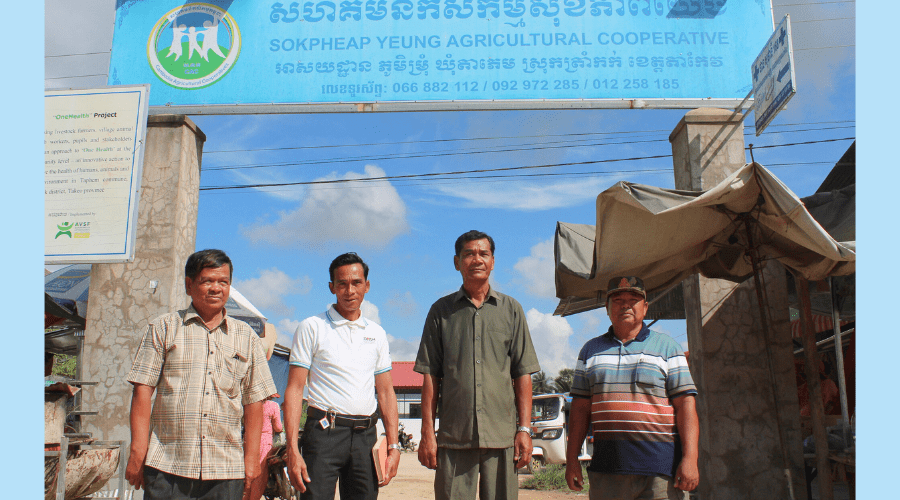
After a particularly complicated and violent period in its history under the Khmer Rouge regime, Cambodia can boast of having halved its poverty rate between 2014 and 2022. Even if extreme poverty is still far from being eradicated today, this progress proves that it is not inevitable. In the villages, after rice, poultry farming is […]
Animal health in southern Madagascar
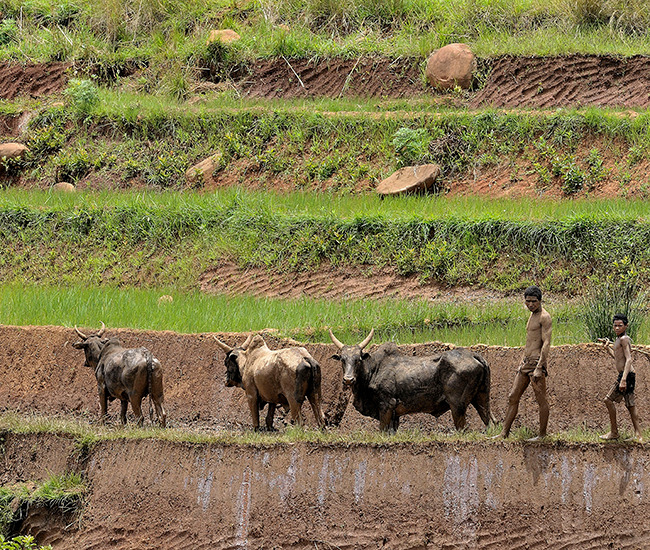
High-performance, resilient breeding
